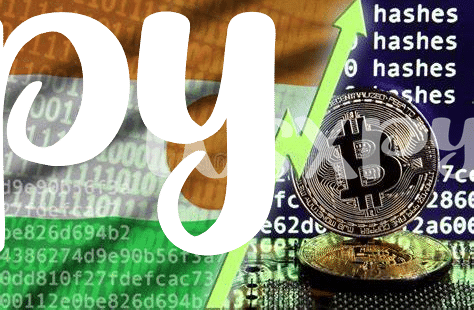Impact of Foreign Exchange Controls on Bitcoin ⛓️

Foreign exchange controls in Nigeria have played a significant role in shaping the adoption of Bitcoin in the country. The restrictions imposed on traditional currency transactions have led many Nigerians to turn to Bitcoin as an alternative means of conducting international trade and remittances. These controls have highlighted the decentralized and borderless nature of Bitcoin, allowing individuals to bypass traditional financial systems and engage in cross-border transactions with greater ease. As a result, the impact of foreign exchange controls on Bitcoin has catalyzed interest and adoption of the cryptocurrency among Nigerians seeking more accessible and efficient ways to navigate the limitations imposed by regulatory constraints.
Challenges Faced by Nigerians in Using Bitcoin 💸
Nigerians face significant challenges when using Bitcoin. The volatility of the cryptocurrency market can make it difficult for individuals to predict price movements, leading to potential financial losses. Moreover, the lack of widespread understanding and acceptance of Bitcoin as a legitimate form of payment in Nigeria poses obstacles for its adoption. Additionally, navigating the technical aspects of digital wallets and exchanges can be daunting for inexperienced users, resulting in a barrier to entry for many Nigerians looking to participate in the Bitcoin economy.
Despite these challenges, some Nigerians view Bitcoin as a valuable tool for financial inclusion and a means to bypass traditional banking systems that may be restrictive or unreliable. The peer-to-peer nature of Bitcoin transactions also offers a level of anonymity that can be appealing in a country with stringent financial regulations. Overall, the challenges faced by Nigerians in using Bitcoin underscore the importance of education and awareness initiatives to promote safe and responsible cryptocurrency use in the region.
Evolution of Bitcoin Adoption in Nigeria 📈

The journey of Bitcoin adoption in Nigeria has been a fascinating one. From humble beginnings to a growing presence in the country’s economy, the evolution of Bitcoin has garnered attention and interest from individuals seeking financial freedom and innovation. Nigerians have increasingly turned towards Bitcoin as a means to navigate the challenges posed by traditional banking systems, inflation, and foreign exchange controls. The decentralized nature of Bitcoin has provided a platform for individuals to take control of their finances and participate in a global economy that transcends borders and regulations. As awareness and understanding of Bitcoin have increased, so too has its usage in everyday transactions and as a form of investment, showcasing a shift towards digital alternatives in a predominantly cash-based society.
The evolution of Bitcoin adoption in Nigeria reflects a larger trend towards embracing technology and decentralized finance solutions. As more Nigerians explore the opportunities presented by Bitcoin, the landscape of financial transactions in the country continues to evolve, paving the way for a future where traditional barriers to financial inclusion are challenged and overcome. The growing acceptance and integration of Bitcoin into various sectors of the economy signal a promising path towards greater financial empowerment and inclusion for all Nigerians.
Pros and Cons of Bitcoin Amidst Exchange Controls 💡

When navigating the realm of Bitcoin within the landscape of foreign exchange controls, it is essential to weigh the array of advantages and drawbacks this entails. The decentralization of Bitcoin presents a notable advantage in privacy and accessibility for Nigerians aiming to circumvent restrictive exchange controls. However, the volatility associated with cryptocurrencies can pose a risk under such regulations, potentially amplifying financial uncertainties. Despite these challenges, the transparency and security offered by Bitcoin amidst exchange controls serve as a beacon of hope for financial inclusion and empowerment in Nigeria. As these dynamics continue to intersect, exploring innovative solutions and strategies, as well as learning from global cases like the impact on Bitcoin in Nepal due to foreign exchange controls affecting Bitcoin in Netherlands, can pave the way for a more resilient and adaptable ecosystem.
Strategies to Enhance Bitcoin Use in Nigeria 🚀
Strategies focused on creating user-friendly platforms and increasing public awareness can significantly boost Bitcoin adoption in Nigeria. Simplifying the process of acquiring, storing, and using Bitcoin, while providing educational resources on the benefits and risks, can empower more Nigerians to confidently engage with this digital currency. Collaborating with local businesses to accept Bitcoin payments and developing secure and efficient peer-to-peer trading channels can also enhance the practicality and convenience of using Bitcoin in daily transactions. Moreover, fostering an ecosystem that encourages innovation and regulatory clarity can attract more investments and talent into the Nigerian blockchain space. By leveraging these strategies, Nigeria can unlock the full potential of Bitcoin as a transformative financial tool that empowers individuals and drives economic growth.
Future Outlook for Bitcoin Adoption in Nigeria 🔮

As the adoption of Bitcoin in Nigeria continues to gain momentum, the future outlook is filled with potential and promise. With increasing awareness and interest in digital currencies, coupled with the challenges presented by foreign exchange controls, there is a growing need for innovative solutions to facilitate the use of Bitcoin in everyday transactions. As more Nigerians explore the benefits and opportunities that Bitcoin offers, the landscape of financial transactions in the country is expected to undergo significant transformations. By implementing user-friendly platforms, educating the public on the advantages of Bitcoin, and collaborating with regulatory bodies to address concerns, the path towards widespread adoption of Bitcoin in Nigeria looks promising. The evolving regulatory environment and the evolving technological landscape provide a fertile ground for the integration of Bitcoin into the mainstream economy, paving the way for a future where digital currencies play an increasingly vital role in shaping the financial ecosystem of Nigeria.
Foreign Exchange Controls Affecting Bitcoin in Nepal
